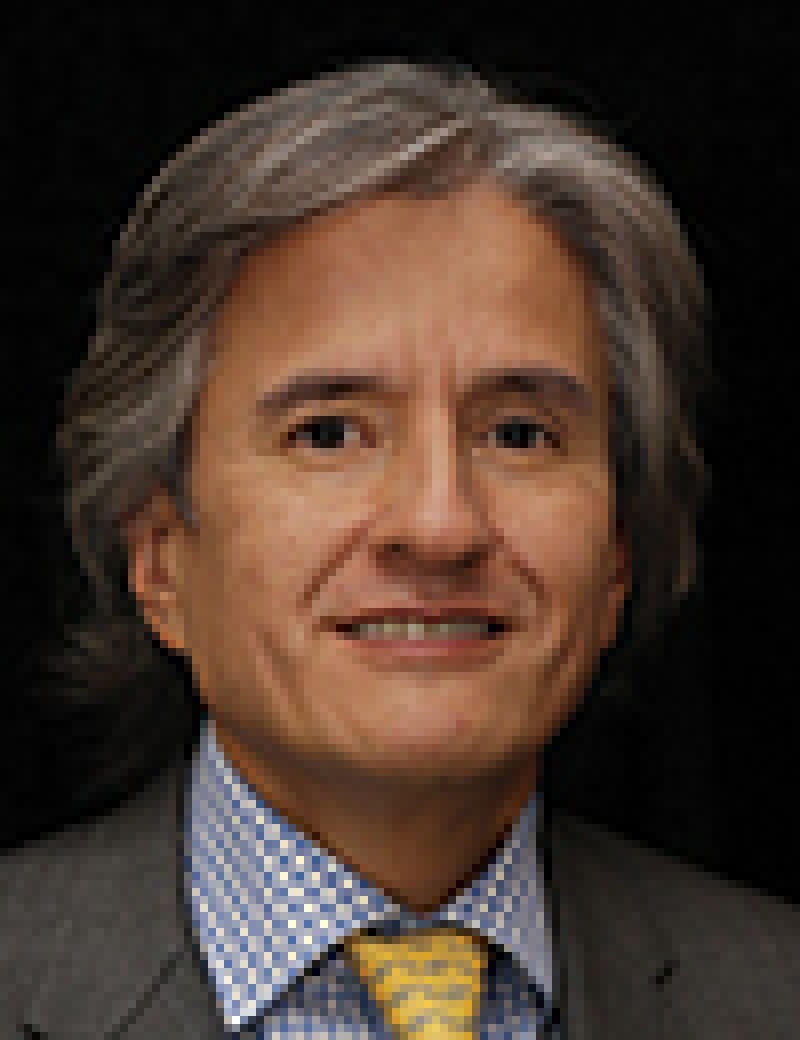For too many years the only alternatives that governments seemed to have had at hand to confront their cash needs have been to increase taxes or create new taxes. Of course, during presidential campaigns candidates also invariably promise to cut expenses but once in office, they fail to keep their promises. Over the years, new taxes have piled up and rates for corporate taxpayers have climbed to unacceptable levels. At one point, Colombia's corporate income tax became the second highest in the world.
Such a situation created a significant handicap for a country that wanted and needed to attract foreign and local investment. According to the World Economic Forum's Global Competitiveness Report, Colombia fell five positions between 2017 and 2018, with tax rates and tax regulations highlighted as the second and seventh most problematic factors for doing business in the country (The Global Competitiveness Index 2017-2018).
The 2016 tax reform (the last reform conducted by the previous government) established a gradual reduction in corporate income tax but created a surtax for 2017 and 2018 to guarantee resources for its two last years in office. In other words, it left to the next government the responsibility of dealing with the cash shortfall that the tax cuts would generate.
As governments always do, at least in Colombia, the new government presented a tax bill before Congress a few months after taking office. The bill proposed, amongst other things, a reduction to the corporate income tax rate – which the president-elect had proposed during his campaign. This would be financed by extending VAT to all goods and services, including the basic basket of goods. In the end, Congress accepted the reduction to corporate tax but refused to extend VAT to all goods and services. Instead, it created certain temporary and frankly anti-technical taxes that did not cover the gap created by corporate income tax reduction that it had approved.
President Iván Duque has announced that he will not launch any additional tax reforms during his mandate, which is good news for taxpayers who are used to having at least two tax reforms per presidential term. But it means that during the next three years, the government will have to reduce its expenses and/or increase tax collection substantially, through means other than tax reform. And the clock is ticking. Indeed, although the government will have the funds it needs to operate in 2019 and 2020, it seems that it may not in 2021.
The government has started to give some indication of how it plans to cope with the shortfall in the tax take without resorting to tax reform. In 2018, it swapped debt due to mature in 2019 for longer term debt. It also reduced its spending in the 2019 budget and it is planning to sell its participation in some non-strategic assets.
From a tax perspective, the government needs to focus on controlling tax evasion. It does not seem realistic to expect that the reduction in corporate income tax will incentivise investment and productivity up to a point that it generates enough tax revenues to cover the fiscal deficit.
A new tax strategy in the making
So, what is the Tax Office doing and what might it do to raise tax collection over the coming years? Some of the strategies we are already seeing and that we will be seeing more of, include: transfer pricing audits; the auditing of international transactions; and a concerted effort to tackle the informal economy and tax evasion.
Colombian transfer pricing regulations have been around for many years; however, transfer pricing audits have not been very common, mainly because there are not that many tax auditors who understand transfer pricing. In many cases, transfer pricing audits have resulted in expenses being disallowed for reasons other than transfer pricing. Meanwhile, in other cases the technical grounds on which transfer pricing cases are founded are questionable. Transfer pricing litigation will likely increase and the amounts at stake will be significant. However, in the near future, transfer pricing discussions will likely continue to focus on low complexity issues and targeted transactions will continue to be in the commodities sector.
Something that is troubling in regard to transfer pricing audits is that there are very few judicial precedents and tax judges do not have experience or technical knowledge of transfer pricing matters. It is therefore of the utmost importance to team tax litigators and real transfer pricing experts up, so that they can work together to clearly and convincingly prepare and convey arguments and evidence of a case to the judges.
As for the auditing of international transactions, the Tax Office is harnessing its resources to understand how international structures can erode the Colombian tax base. Besides using the Common Reporting Standard of the Multilateral Competent Authority Agreement (CRS MCAA) to collect information and thanks to its acceptance to the OECD, Colombian tax authorities are learning from other countries about structures that can be used to implement aggressive tax planning alternatives. Tax authorities will likely start to target some of these structures.
In any event, multinational companies should be prepared to prove the substance of their transactions, as tax authorities have started to look through formalities and focus on business purpose and substance. The tax reform has provided the authorities with better tools to disregard transactions and re-characterise them for tax purposes. Tax authorities have also started to focus their attention on treaty shopping. We anticipate that now that Colombia has been admitted to the OECD and once the Multilateral Instrument (MLI) is enforceable, reviewing the applicability of treaty benefits on taxpayers will be part of the Tax Office's agenda.
Informal economy and tax evasion
The informal sector and tax evasion remain key challenges that tax collectors face in Colombia. Pursuant to the National Department of Statistics (DANE), as of May 2019, more than 48% of the workforce in Colombia's cities and metropolitan areas was informal. Besides hampering productivity, the informal economy is, without doubt, one of the biggest hotspots of evasion. According to statistics from the Tax Office, income tax and VAT evasion could amount to COP40 trillion (approximately $13 billion) each year.
Given the size of the informal economy, the Tax Office does not have the technological or human resources to adequately control taxpayers but it has started, albeit late in the day, to modernise its systems. Last year, electronic invoicing became mandatory for big taxpayers. From 2019 and 2020, all taxpayers that are responsible for collecting VAT and/or national excise taxes will also be obliged to issue electronic invoices. The Tax Office will soon have valuable information for auditing taxpayers, at least the ones that are formalised; through the information obtained from these taxpayers, the Tax Office may start to have more information of the ones that are in the shadows. But getting to them will be a big challenge, given the size of informal economy.
As an incentive to formalise, the 2018 tax reform created the Simple Regime, which is open to individuals that comply with certain requirements set forth in the law. Taxpayers under the Simple Regime will have a reduced tax burden and will be subject to fewer formal requirements than individuals filing under the ordinary tax regime.
The 2016 tax reform also included a mechanism aimed at formalising taxpayers but the mechanism failed, as very few individuals were registered. The Simple Regime has a tool that the 2016 reform lacked, as it empowers the Tax Office to register onto the Simple Regime individuals who fail to comply with their income or VAT return filing obligations. The success of this formalisation mechanism will depend heavily on whether or not the Tax Office uses this tool.
Even if the Tax Office successfully applies the measures listed above and any others it may have, the chance that it will generate the resources that the government requires to operate is not great. It is highly probable that for 2021, the government will have to decide between significantly reducing its expenditure or proposing a new tax reform, or both.
Jaime Vargas |
|
|---|---|

|
Tax managing partner, BTS leader LatAm North Ernst & Young Colombia Tel: +571 484 7590 Jaime Vargas is EY Colombia's senior tax partner, business tax services leader of EY Latin America North, and EY Andean market tax leader. He joined EY Colombia on November 2014. Prior to joining the firm, Jaime was a partner at Baker McKenzie (2010-2014), corporate and international tax manager of Coca-Cola Femsa (Mexico, 2007-2010), managing tax partner of Deloitte Colombia (2002-2007), managing tax partner of Andersen Colombia (2000-2002) and partner of Baker McKenzie (1995-2000). Jaime has been advising companies for more than 27 years in tax matters. He has substantial experience in mergers and acquisitions, national and international tax planning, and taxes applied to the oil and gas industry. He advises or has advised companies such as Advent, Brookfield, Enel, Telefónica, Chevron, British American Tobacco, Coca-Cola Femsa, Cemex, Jeronimo Martins, Cemex, Pepsico, SAP, AT&T, Apple, amongst others. Jaime is professor of tax planning in the tax prograduate programme of Universidad Externado de Colombia. He has also lectured in tax prograduate studies of Universidad Javeriana and Universidad del Rosario. He is a member of the International Fiscal Association and of the Colombian Institute of Tax Law. Jaime is a lawyer of Universidad Externado de Colombia (Bogotá, Colombia) with a specialisation in tax law at Instituto Tecnológico Autónomo de México (Mexico City, Mexico). Since many years ago, Jaime has been consistently recognised as one of the leading tax advisers in Colombia by specialised publications such as Chambers Law, International Tax Review, Euromoney, and Which Lawyer, amongst others. |












